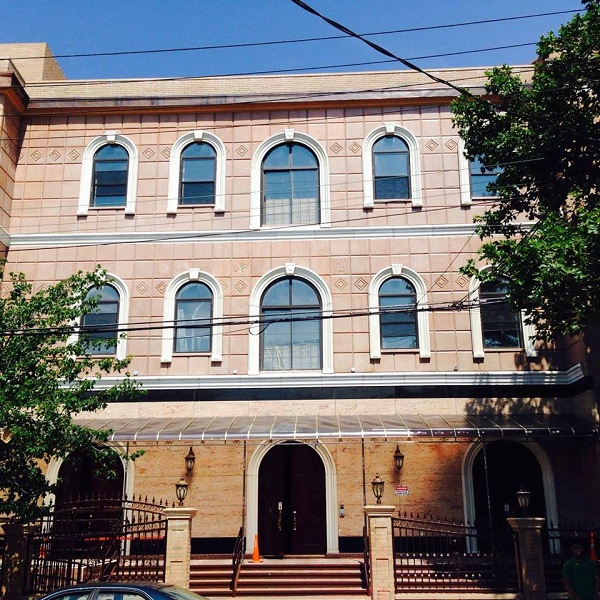
Masjid Al Aman mosque
The Masjid Al Aman mosque in City Line.
Masjid Al Aman, a mosque and community center that has served thousands of residents in the City Line section of East New York for over 25 years, is the latest house of worship on the path to foreclosure due to an improper denial of property-tax exemption under the state law that mandates charity organizations pay no property taxes to municipalities where they own parks, community centers and places of worship.
The Masjid’s situation is part of a pattern of treatment of the small organizations that serve as nerve centers for our communities by New York City’s Department of Finance.
The Department has refused to extend the exemption the Masjid has had since 2010 because the charity is doing costly construction and doesn’t currently have a Certificate of Occupancy; this detail is important to the work of the city, but irrelevant to the state law which governs property-tax exemptions. Masjid Al Aman joins a startling list of houses of houses of worship, medical centers and other nonprofit organizations for which the Department has replaced full property-tax exemptions with bills as high as $100,000 per year due to withdrawal of their exemption status.
A vast majority of the staff and volunteers that run these organizations are unaware of their property-tax exemption revocations until foreclosure has been initiated, or even completed via a trial at which no one appears to represent the charity. Financial resources for retaining bookkeeping and compliance monitoring services are slim and are often handled by volunteer congregants who often aren’t privy to changing code requirements.
Every summer, the Department of Finance sells all debt on its books to a third party private trust which can add 18 percent interest compounded daily to the original amount it purchases from the city, pursue collection and hire an attorney to foreclose on the lien on its behalf. After foreclosure, the property is auctioned and the trust gets proceeds of the sale, in addition to fees and interest; buyers are usually corporate and other for-profit entities.
Transferring properties that serve the community to for-profit entities fuels the gentrification plaguing many neighborhoods through reverse Robin Hood tactics of taking from the poor and giving to the rich.
Masjid Al Aman is open for prayer five times each day, with Friday congregational prayers and holiday prayers attended by thousands. But that’s not all the mosque does. Masjid Al-Aman is not only a place of worship but a center for social gathering, and a place to assemble to rejuvenate our individual and collective spirit. The mosque provides the following services for youth: counseling, weekly open discussions, a weekly sisters’ learning program, an annual conference with scholars, trips and after school support. For adults, the mosque offers continuing education classes. And everyone in the community joins for Iftar with neighbors of other faiths and cultures during Ramadan and an annual BBQ. It’s also a safe space for Muslims living in country that has all but declared war on Muslim people. Putting our Masjid at any risk puts all of us at risk as Muslims Americans, and our way of life.
Ironically, Mayor de Blasio’s administration is not alone in taxing nonprofits while lining the pockets of the wealthy. Recently, Republicans have quietly imposed new taxes on churches, synagogues and other nonprofits. The recent tax-code rewrite requires churches, hospitals, colleges, orchestras and other historically tax-exempt organizations to begin paying a 21 percent tax on employee benefits. The change could cost groups tens-of-thousands of dollars. We have to ask why a mayor who purports to be an advocate for regular New Yorkers doesn’t step up to help save nonprofits from inappropriate tax liens and foreclosures.
Twenty-five members of the City Council have signed on to a bill that when passed will exempt charity organizations from lien sales; now is the time to get it passed to protect the Masjid and other community organizations in advance of the 2019 summer tax lien sale. We need, as a community, to rally around organizations that are at risk of losing spaces — spaces the feed the hearts and souls of our communities. The city must stop the reverse Robin Hood tax schemes that threaten nonprofits and our communities.
Kobir Chowdhury is the president of Masjid Al Aman mosque and Paula Segal is an attorney with the Equitable Neighborhoods Practice of the Community Development Project.








One thought on “CityViews: Stop the Reverse Robin Hood Tax Scheme Threatening Community Nonprofits”
If you don’t pay the money you lose. Its simple as that. No amount race baiting will save you. Period.